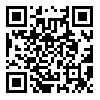目的 分析老年维持性血液透析(MHD)患者家庭复原力的潜在类别及影响因素,为临床制订预见性护理干预措施提供参考。方法 选取296例老年MHD患者作为研究对象,采用一般资料调查表、家庭复原力问卷、中文版心理韧性量表、家庭关怀度指数和中文版医疗社会支持量表对其进行调查。对老年MHD患者家庭复原力进行潜在剖面分析,并通过多元Logistic回归模型分析探讨其不同类别的影响因素。结果 老年MHD患者家庭复原力可分为家庭复原力低水平(n=59,19.9%)、家庭复原力中等水平(n=152,51.4%)和家庭复原力高水平-低开放性(n=85,28.7%)3个潜在类别。多元Logistic回归分析结果显示,家庭人均月收入、婚姻状态、文化程度、透析年限、家庭关怀度、心理韧性和医疗社会支持水平是老年MHD患者家庭复原力的影响因素(P<0.05)。结论 老年MHD患者家庭复原力水平具有明显的异质性,且受家庭人均月收入、婚姻状态、文化程度、透析年限、家庭关怀度、心理韧性和医疗社会支持水平的影响。医护人员应重视此类患者家庭复原力的评估,精准识别家庭复原力的薄弱环节,可根据患者的不同类别特征及其影响因素,采取多维度护理干预策略,促进其家庭复原力水平的提升。
广西医学 页码:1142-1149
作者机构:吴国凤,硕士,主管护师,研究方向为老年护理。
基金信息:广西医疗卫生适宜技术开发与推广应用项目(S2022057)
- 中文简介
- 英文简介
- 参考文献
Objective To analyze the potential categories and influencing factors of family resilience in elderly patients undergoing maintenance hemodialysis (MHD), providing reference for formulating clinical predictive nursing and intervention strategies. Methods A total of 296 elderly MHD patients were selected as the research subjects, and they were investigated with the general information questionnaire, Family Resilience Questionnaire, Chinese version of Connor⁃Davidson Resilience Scale, Family Apgar index and Chinese version of Medical Outcomes Study Social Support Survey. Latent profile analysis was performed on family resilience of elderly MHD patients, and multivariate Logistic regression model was adopted to analyze and explore the influencing factors for different categories of family resilience. Results The family resilience of elderly MHD patients could be divided into three potential categories as follows: low level of family resilience group (n=59, 19.9%), medium level of family resilience group (n=152, 51.4%) or high level of family resilience and low openness group (n=85, 28.7%). The results of multivariate Logistic regression analysis revealed that the influencing factors for family resilience of elderly MHD patients included family monthly income per capita, marital status, educational level, dialysis duration, family care, psychological resilience and medical social support level (P<0.05). Conclusion The level of family resilience in elderly MHD patients is obviously heterogeneity, and is affected by factors such as family monthly income per capita, marital status, educational level, dialysis duration, family care, psychological resilience and medical social support level. Medical and nursing personnel should pay attention to its assessment and accurately identify the weak links of family resilience. According to the characteristics of different categories of elderly MHD patients and its influencing factors, multi⁃dimensional nursing intervention strategies can be adopted to promote the improvement of their family resilience.
- ref
- ref
- ref
- ref
- ref




 注册
注册 忘记密码
忘记密码 忘记用户名
忘记用户名 专家账号密码找回
专家账号密码找回 下载
下载 收藏
收藏
